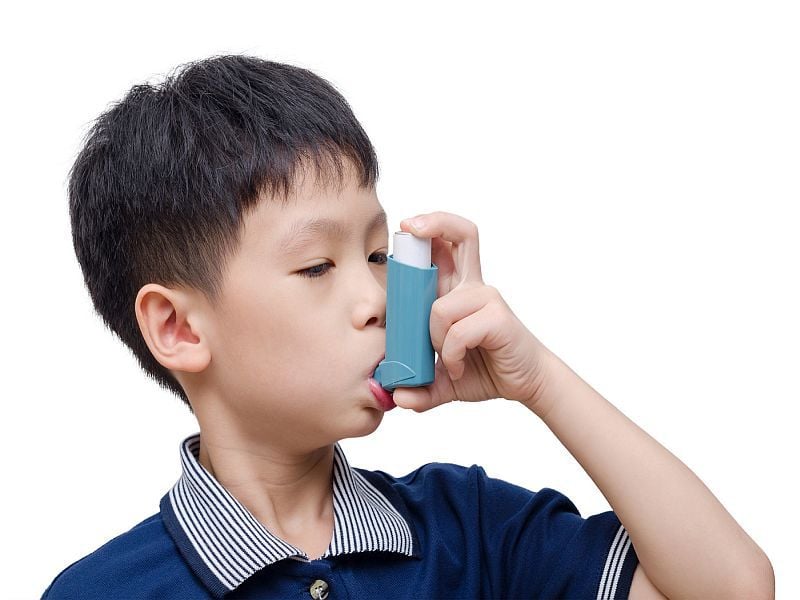Parents of children with asthma can breathe easier thanks to a bill recently signed by Gov. Doug Ducey that will allow schools to stock and administer asthma medication to children experiencing respiratory distress.
Prior to the new legislation, if a child didn't have his or her inhaler, schools had to either call a parent to bring one or call an ambulance.
The program will be implemented next school year and will be offered to all Pima County schools — public, private and charter.
How it started
In Arizona, 174,100 children — 11 percent of the youth population — have asthma.
Lynn Gerald, a professor of public health at the University of Arizona, found that 80-90 percent of children with asthma have no quick-relief medication at school because they forgot it, they can't afford it, they ran out or the medication expired.
So she worked with Sunnyside and Tucson Unified School Districts, as well as the Catholic Dioceses Schools of Pima County to implement a school-based stock albuterol program for students with asthma.
The results were a 20 percent decrease in 911 phone calls and a 40 percent drop in ambulance transports.
"Clearly what we want to do is not only allow safety of these children, but if there's an inhaler they can go to the health office and take a couple puffs on the inhaler and only miss ten minutes of class instead of missing a day or a couple days because they don't have the inhaler with them," Gerald said.
Each of Sunnyside's 21 schools are stocked with one to two inhalers with the opportunity to order more as needed, said Eugenia Favela, the assistant superintendent for student services at Sunnyside.
The schools are also stocked with spacers so the child's mouth is not touching the inhalers, making it possible for more than one child to use it.
School nurses, health clerks and non-medical personnel are trained on how to administer the medication, through an online program created by the University of Arizona.
The medication has no side effects and wouldn't be harmful if a student who is having a respiratory problem mistaken for asthma was given the medicine, Gerald said.
"Our physicians like to say the only way a child would be harmed would be if they swallowed the inhaler," Gerald said.
Gerald presented her findings to the Arizona House of Representatives on Feb. 2 and the Senate Health Committee on March 8, which resulted in Arizona becoming the 11th state to pass a law that allows schools to keep a supply of emergency asthma medication on hand.
"It will help tremendously, these kids who come to school and not only get sick but who aren't that sick and have to go to emergency rooms or go home," said Conrad Clemens, a professor of pediatrics at the University of Arizona.
Funding
Sunnyside has paid for its own inhalers with money from the health services budget since it's been implemented, Favela said.
"Anything considered a supply comes out of that budget," Favela said. "If we have to have it, we find it (the money)...We're happy we can provide another service for students to help them stay in school and keep them from having to miss...Bottom line is it's what's good for kids."
To implement the program in all schools, Banner-University Medical Center will donate $8,000 to $10,000 to purchase enough inhalers for every Pima County school to have at least one for the next school year.
"Sometimes there are ideas that kind of come from the faculty that are too good to turn down and this proposal that we received...it seemed like such an innovative, great idea," said Tom Dickson, CEO of Banner-UMC. "So we said we'd be happy to provide some seed money for this."





